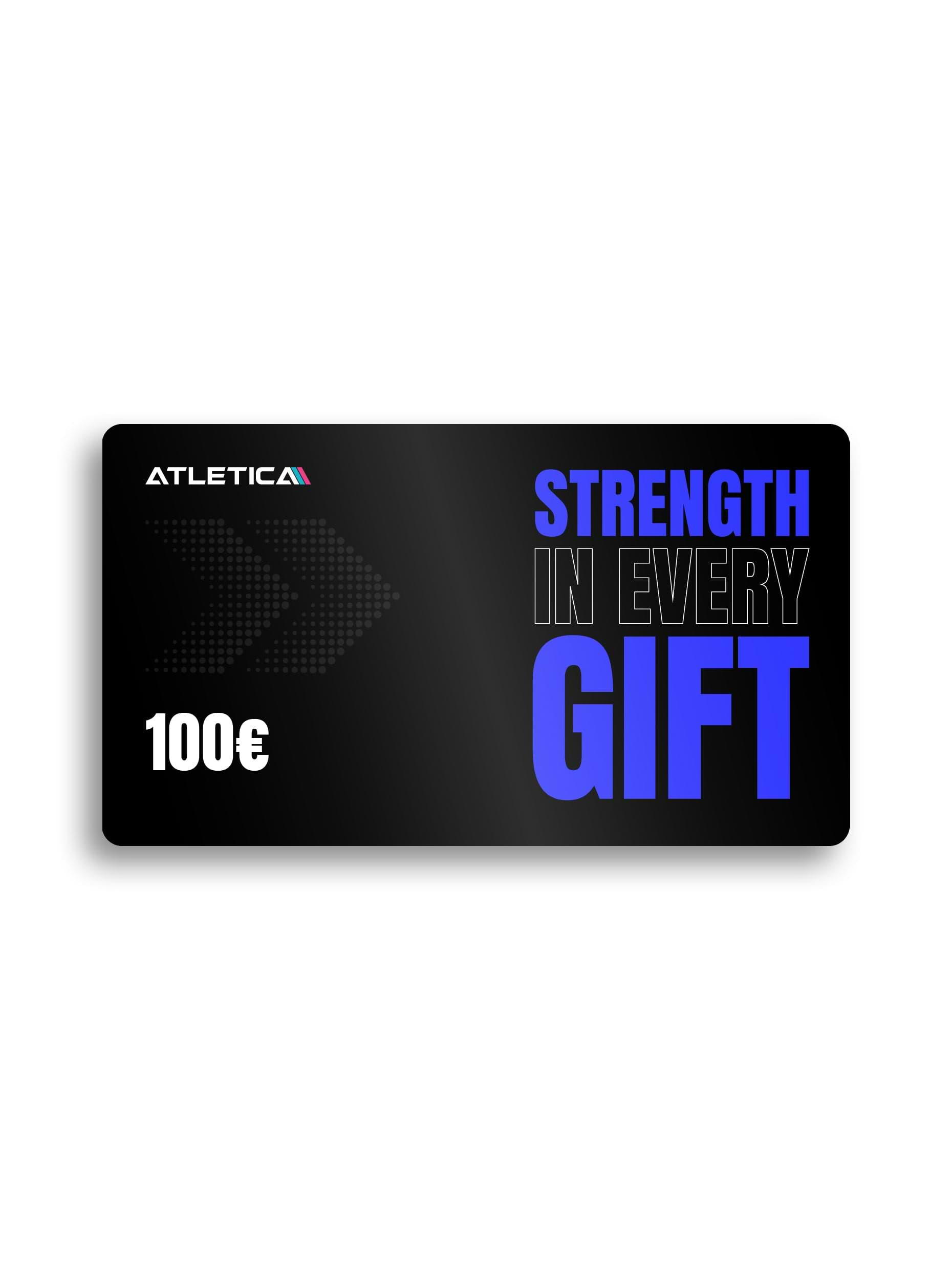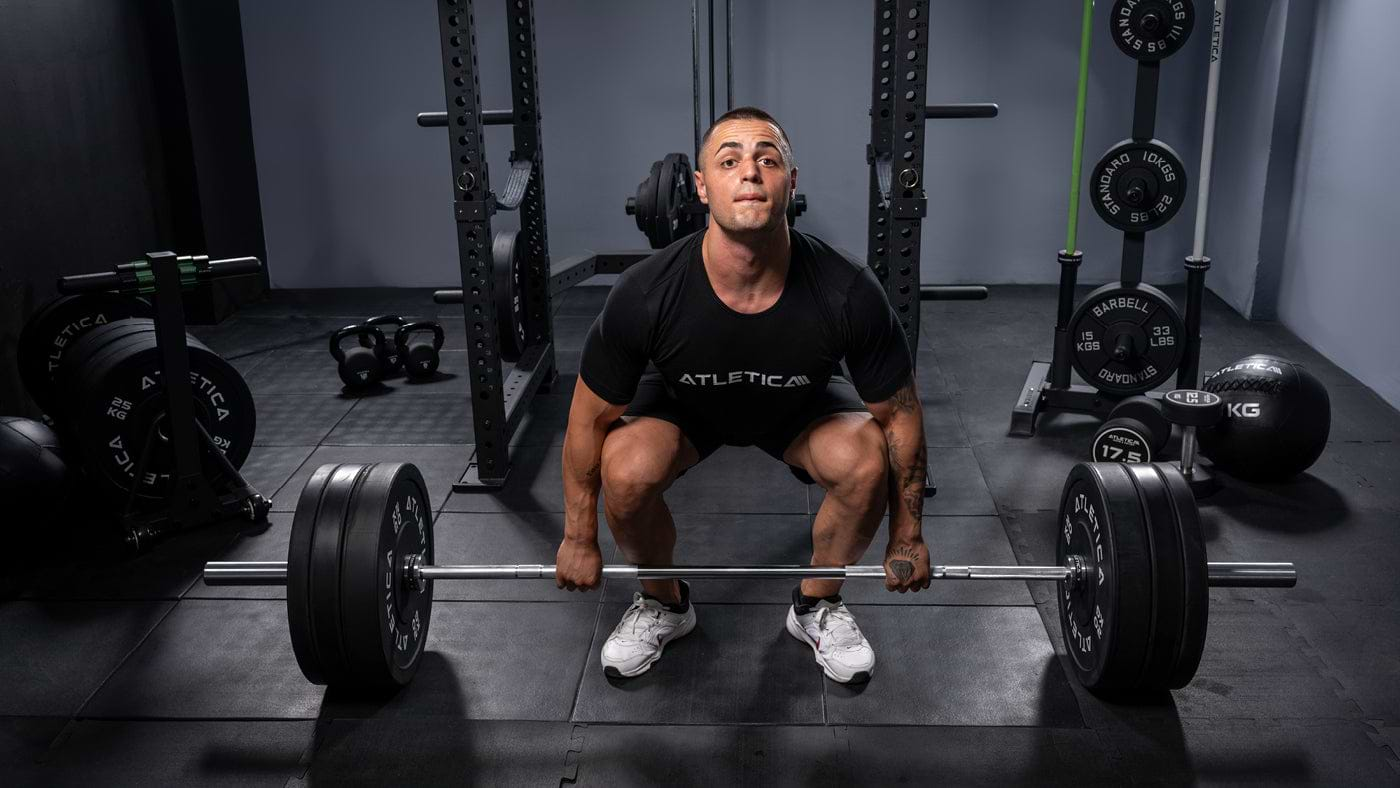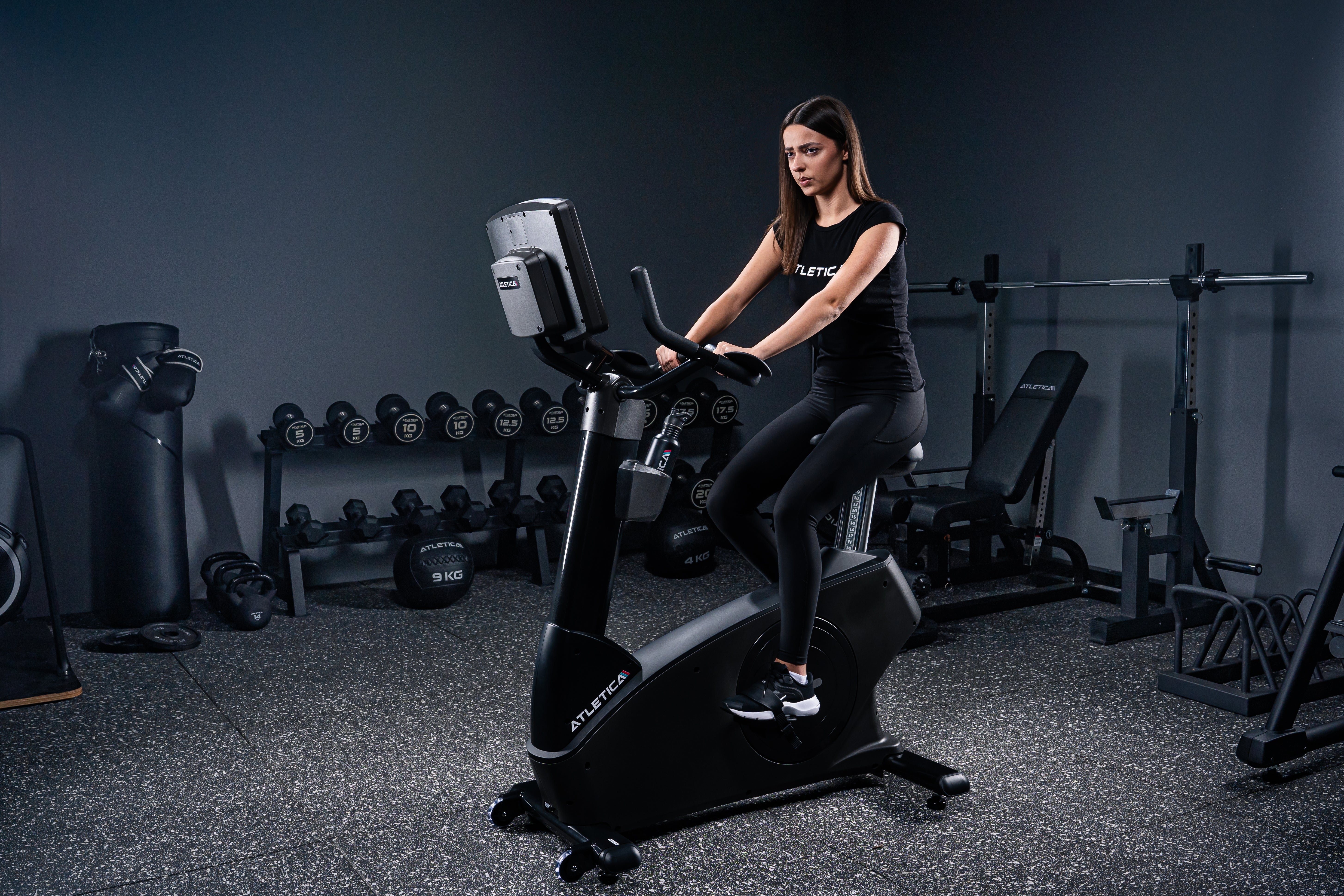For many, six-pack abs are the ultimate fitness goal—a symbol of discipline, health, and physical aesthetics . But what does it really take to develop visible, strong abs? Is daily crunches enough? Or is there more to it? In this comprehensive guide, we'll explain how to effectively build a six-pack, which training and nutrition are crucial—and how you can reach your goal even faster with Atletica equipment.

1. Anatomy of the abdominal muscles: More than just the six-pack
If you want a six-pack, you should understand which muscles are involved:
- Musculus rectus abdominis : the classic "six-pack" muscle
- Musculus obliquus externus & internus : the oblique abdominal muscles – important for rotation and waist
- Transversus abdominis muscle: deepest layer, ensures stability and a flat stomach
Targeted training of all areas not only leads to aesthetic results, but also to better posture, a stable core , and less back pain. A strong core is the foundation for almost every movement—whether in everyday life or during sports.
2. The Myth of Spot Reduction: Why Abdominal Exercises Alone Are Not Enough
Many people believe they just need to do enough crunches to lose belly fat. Wrong! The body never burns fat in specific areas—it reduces it globally, depending on genetic predisposition. Therefore, the following applies:
Visible abs are created in the kitchen, not in the gym.
You need a calorie deficit to burn fat – no matter how hard you train your abs. Six-pack abs become visible when your body fat percentage drops. For men, it's usually below 12. %, for women under 18 %. Reducing visceral fat not only improves your appearance, but also has a positive impact on your health.
3. Training for strong, defined abdominal muscles
An effective abdominal workout consists of:
a) Core stability
- Plank variations (e.g. B. Side Plank, Plank with Leg Raises)
- Dead Bug – for deep core muscles
- Bird Dog – improves balance and coordination
- Hollow Body Hold – static whole body tension
b) Dynamic exercises
- Crunches & Sit-ups (with a focus on controlled execution)
- Russian Twists (with or without weight)
- Hanging Leg Raises – challenging and effective
- Mountain Climbers – also for fat burning
- Flutter Kicks – for lower abdomen and hip flexors
c) Rotation & anti-rotation exercises
- Pallof Press – with resistance band or cable pull
- Woodchopper – diagonal movements with weight
- Side Plank with Rotation – combines strength & flexibility

A balanced mix of static and dynamic exercises ensures muscle building, functional strength and improved core stability.
4. The best equipment from Atletica for your six-pack
The right tools increase effectiveness and training variety:
- Ab Wheel: maximum activation of the entire torso
- Exercise mat : as a basis for every core workout
- Resistance bands : for core stability and anti-rotation exercises
- Dumbbells & Kettlebells : e.g. E.g. for Russian Twists or Woodchopper
- Rowing machine : combines endurance, core engagement and fat burning
- Indoor Bike : for HIIT and calorie burning
All equipment is available in high quality from Atletica – ideal for the home gym or the professional studio.
5. The influence of diet on the six-pack
Without the right diet, there will be no visible results. Important factors include:
- Calorie deficit (300–500 kcal below requirement)
- Sufficient protein (at least 2 g/kg body weight) – supports muscle building & maintenance
- Complex carbohydrates (e.g. e.g. oatmeal, vegetables , quinoa)
- Healthy fats ( nuts, avocado, olive oil )
- Plenty of water (2–3 liters daily)
What you should avoid:
- Sugary drinks & snacks
- Alcohol – slows down fat loss
- Processed foods with hidden calories
Tip : Use tracking apps like MyFitnessPal or Yazio to monitor your macros and calorie intake.

6. Training frequency & regeneration
Train your abdominal muscles like any other muscle group – with structure and regeneration:
- 3–4 abdominal workouts per week
- 15–20 minutes per unit are sufficient if intensive
- Incorporate training variations regularly
- 48 h Regeneration between units
Too much abdominal training can be counterproductive. Muscles grow during recovery, not during training. So give your core time to recover, just like your other muscle groups.
7. Sample workout plan for six-pack abs
Day 1 – Core Stability
- Plank (3 ×60 s)
- Hollow Hold (3 ×30 s)
- Bird Dog (3×10 per page)
Day 2 – Dynamics & Fat Burning
- HIIT on the rowing machine (15 min.)
- Russian Twists (3 × 20)
- Mountain Climbers (3 ×45 s)
Day 3 – Rotation & Anti-Rotation
- Side Plank with Arm Raises (3×30 s per page)
- Pallof Press with resistance band (3×12)
- Woodchopper with dumbbell (3×12 per side)
This plan can be customized to your individual needs – depending on your training goals, time, and equipment.

8. Activate abdominal muscles in everyday life
A strong core not only works in training, but also supports you in everyday life:
- Consciously adopt an upright posture
- Slightly tense your stomach when sitting and walking
- Core activation when lifting heavy objects
These little “ mini workouts ” throughout the day add up – and make a difference in the long run.
9. More tips for your goal
- Sleep : 7–9 hours per night – important for fat loss and muscle building
- Stress reduction : Cortisol promotes fat deposits on the stomach – Yoga, meditation & exercise help
- Patience : A six-pack doesn’t happen overnight – document your progress (e.g. e.g. with photos)
- Motivation : Set realistic intermediate goals – e.g. B. 30 Plank for a few seconds longer or 1 % less body fat in 4 weeks

Conclusion: Your path to a six-pack
A six-pack isn't a myth, but the result of hard work, smart training planning, and a disciplined diet. With targeted core training, a well-thought-out calorie deficit, and the right equipment from Atletica , you'll lay the best foundation for your success.
Keep at it—your six-pack is closer than you think. And with every plank, every clean rep, and every healthy meal, you'll get a little closer to your goal.




































































































